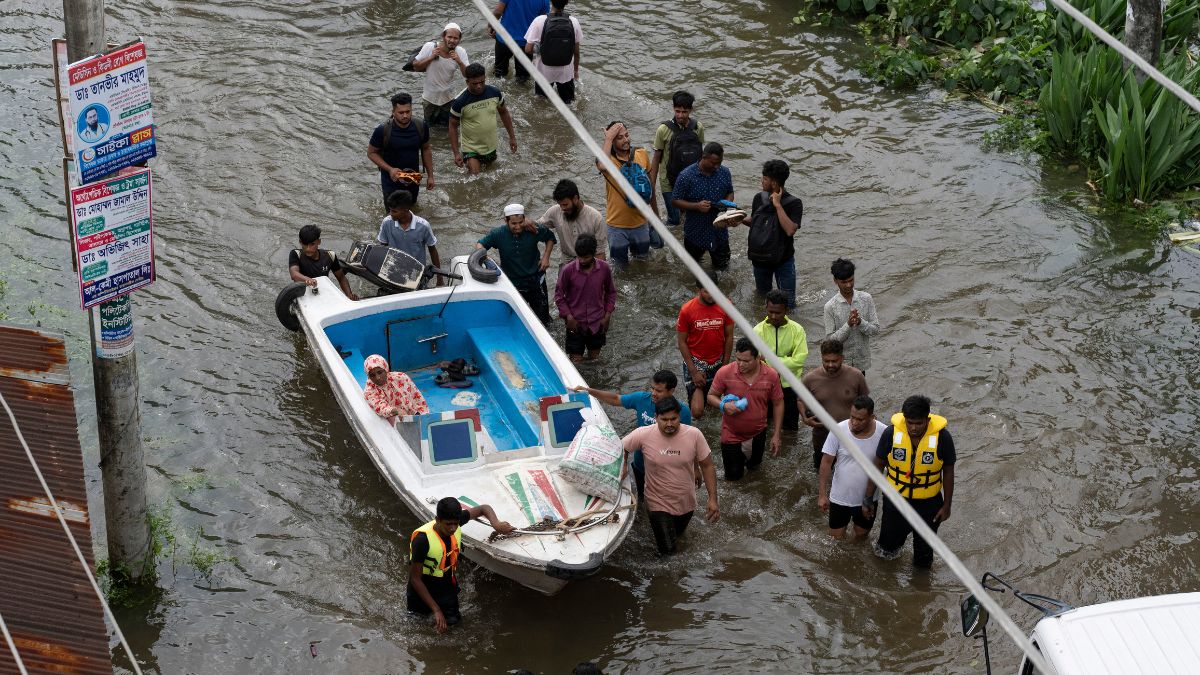At least 20 people have lost their lives, and over 5.2 million have been affected by severe flooding in Bangladesh triggered by relentless monsoon rains and overflowing rivers, officials said on Sunday.
The floodwaters have stranded many residents, leaving them in desperate need of food, clean water, medicine and dry clothing. The situation is especially dire in remote areas, where blocked roads have severely hampered rescue and relief operations, making it difficult to reach the most needy.
Rain stopped in many parts of Bangladesh on Friday and weather officials in Dhaka said the waters had started receding in some areas, but they said the flooding would persist for several more days.
In a televised address on Sunday, Government Chief Adviser Mohammad Yunus said that the administration has adopted all necessary measures to ensure a swift return to normality for flood victims.
In Bangladesh, rumors spread online that the flooding was caused by India opening the Dumbur dam in Tripura, causing several anti-India protests. India’s External Affairs Ministry denied the connection, pointing out that the dam is far from the border and that heavy rains had caused major flooding over a wide area in both countries.
However, New Delhi has rejected.“We have begun discussions with neighbouring countries to prevent future flood situations,” Yunus said. The Bangladesh Meteorological Department has warned that flood conditions could persist if the monsoon rains continue, as water levels are slowly receding.
Impact Shorts
More ShortsYunus, a Nobel Peace Prize winner, is leading the interim government that was sworn in after former Prime Minister Sheikh Hasina fled the country following a student-led uprising this month. Abdul Halim, a 65-year-old farmer from a village in the Comilla district, said his mud hut was swept away by a 10-foot-high surge of floodwater in the middle of the night.“There are no goods and no water. Barely anyone has come with the relief (aid) deep inside the villages. You have to physically go close to the main road to collect it,” he told Reuters television.
An analysis in 2015 by the World Bank Institute estimated that 3.5 million people in Bangladesh, one of the world’s most climate-vulnerable countries, were at risk of annual river flooding. Scientists attribute the exacerbation of such catastrophic events to climate change.
“The impact of this year’s monsoon rains has been widespread and devastating,” said Kabita Bose, Country Director of Plan International Bangladesh.“Entire communities have been completely inundated, and there are now millions of people, including children, in need of safe shelter and lifesaving humanitarian assistance,” she said.
With inputs from agencies.


)

)
)
)
)
)
)
)
)



